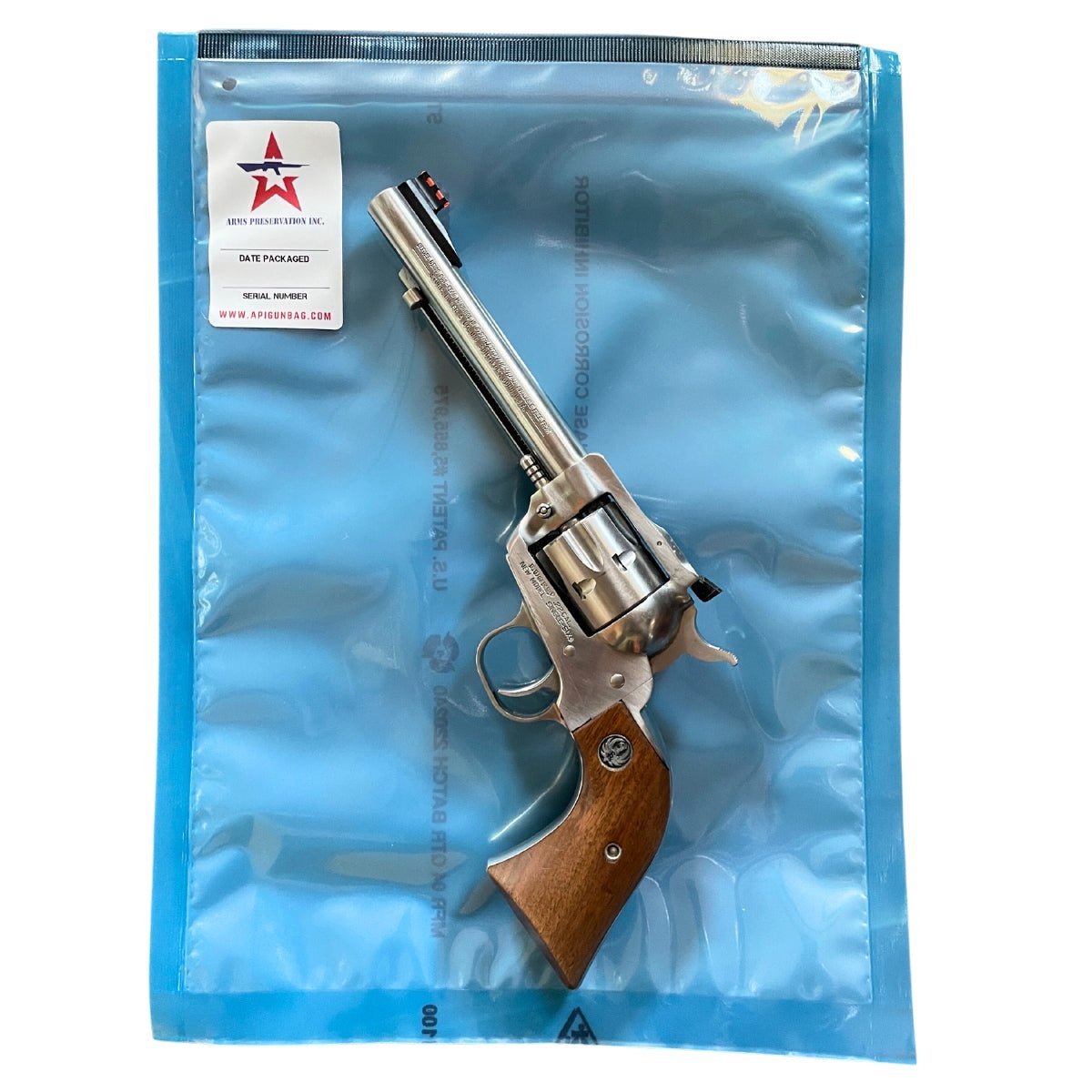Can You Reuse VCI Gun Storage Bags?
Yes, you can reuse VCI gun storage bags when they are clean, dry, and undamaged. Arms Preservation Inc. designs its multi-layer VCI gun storage bags specifically for repeated open and close cycles.
Why Arms Preservation Inc. VCI Bags Are Designed for Reuse
Multi-Layer Barrier Construction
Unlike thin single-layer VCI bags, Arms Preservation Inc. bags use a durable multi-layer barrier design. This structure helps retain VCI vapor longer and resists punctures, tears, and rough handling.
Resealable Hook and Loop Closure
The hook and loop style closure allows fast sealing without tape or heat. It supports frequent access while maintaining a reliable seal when pressed along the full length.
How Long Do Reusable VCI Gun Storage Bags Last?
With proper use, Arms Preservation Inc. VCI bags typically provide effective protection for five to ten years. Lifespan depends on environment, handling, and how often the bag is opened.
If you open the bag monthly, expect performance near the lower range. If you rarely open it, protection can extend toward the higher end.
How to Reuse Your VCI Gun Storage Bag Correctly
Step 1: Start with a Clean, Dry Firearm
Always unload and clear the firearm first. Wipe off fingerprints, salts, moisture, and residue. Heavy oil or grease is not required with Arms Preservation Inc. VCI gun storage bags.
Step 2: Inspect the Bag Before Each Use
Check for punctures, tears, worn corners, or contamination. Confirm the closure area is clean so it can seal properly every time.
Step 3: Load and Seal the Bag
Place the firearm or components inside without stressing seams. Align the hook and loop closure and press firmly across the entire length to create a tight seal.
Step 4: Store in a Stable Environment
Keep the sealed bag away from sharp edges, direct sunlight, and high heat. Store in a safe, cabinet, armory, or case with stable conditions.
When to Replace a Reusable VCI Gun Storage Bag
- Visible tears, holes, or split seams in the film.
- Closure no longer seals along the full length.
- Heavy internal contamination from oil, solvent, or debris.
- Film becomes brittle, cloudy, or severely worn over time.
If any of these conditions appear, replace the bag to maintain consistent rust protection.
Are Reusable VCI Bags Safe for Optics, Ammo, and Finishes?
Arms Preservation Inc. VCI chemistry is dry and non-greasy. It is compatible with common firearm steels, modern finishes, optics, wood stocks, synthetic stocks, and ammunition when used as directed.
Always follow manufacturer guidelines for unique coatings or sensitive electronic devices.
Learn More and Choose the Right VCI Storage Solution
Understand the technology in more detail on the How It Works page.
See how VCI protection functions in How Do VCI Storage Bags Work?
Find pistol, rifle, and ammo options in our VCI gun storage bags collection.
Get more answers on use, lifespan, and compatibility in the VCI FAQ.
FAQ: Reusing VCI Gun Storage Bags
How many times can I reuse a VCI gun storage bag?
There is no fixed reuse count. You can reuse the bag as long as it remains clean, intact, and able to form a full seal.
Does reuse reduce VCI performance?
Normal open and close cycles are expected. Over many years or with heavy wear, effectiveness can decrease. Inspect regularly and replace when you see damage or end-of-life signs.
Do I need to add oil when reusing a VCI bag?
In most conditions, no heavy oil or grease is needed. A light oil is optional if required by your environment or specific firearm maintenance plan.
Can I reuse other brands of VCI bags the same way?
Many thin single-layer VCI bags are not designed for long-term reuse. Always check the manufacturer’s guidance. Arms Preservation Inc. bags are specifically engineered for repeated use.



0 comments